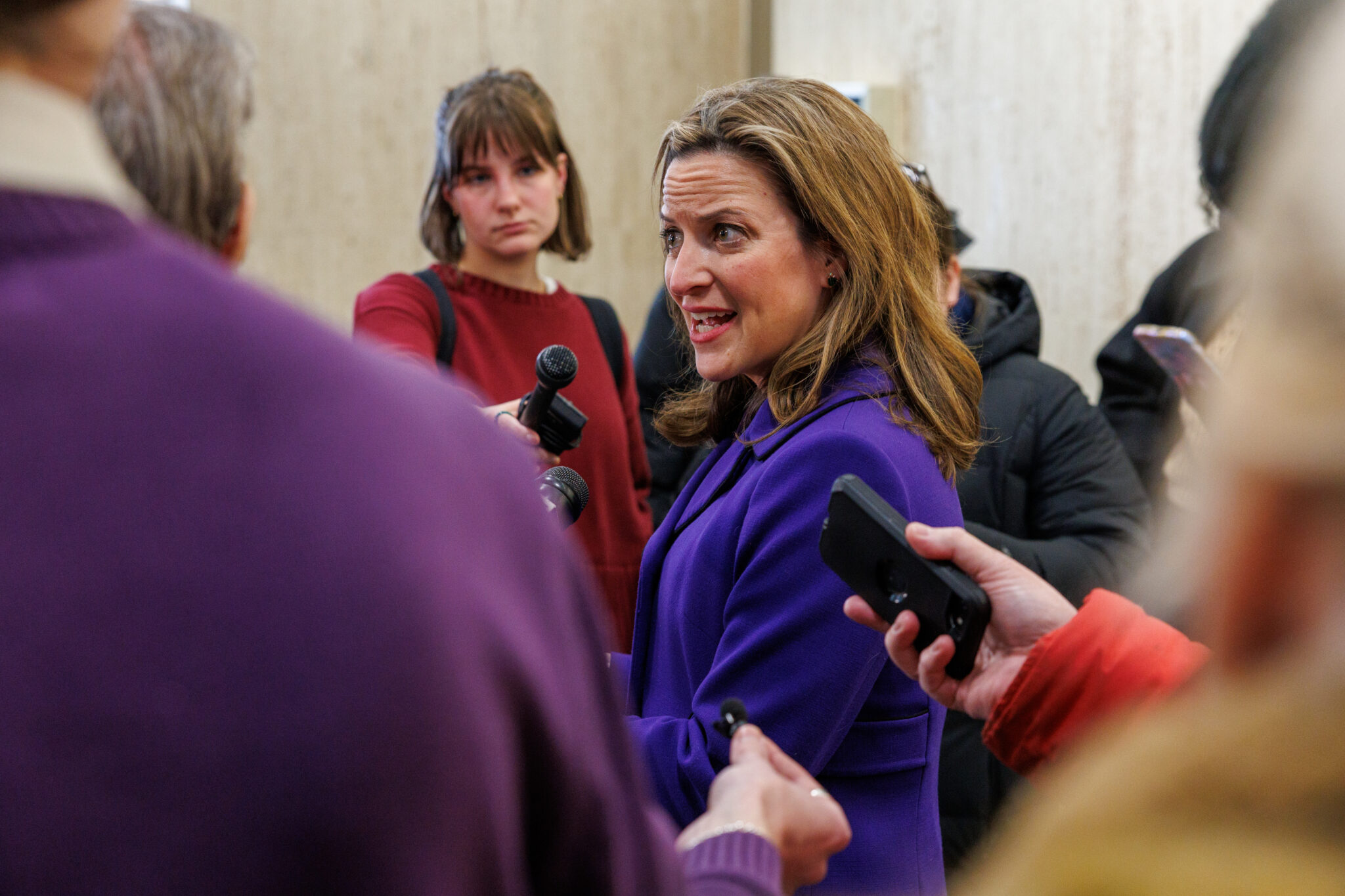The Michigan Department of Attorney General recently announced that the use of a government building by Secretary of State Jocelyn Benson to declare her gubernatorial candidacy violated the state’s campaign finance laws. However, the department clarified that it lacks the power to impose civil or criminal penalties against Benson. Benson, who entered the 2026 gubernatorial race on January 22, held her press conference in the lobby of the Austin building, which houses her office. She cited cold weather as the reason for choosing the indoor location. This decision prompted questions from reporters about whether other candidates could use the same venue for similar purposes, with some pointing out that previous candidates had not been granted such access. Benson assured reporters that other candidates could use the lobby for their announcements, a statement that led to complaints from Republican circles. In a letter addressed to Benson, Joshua Booth, chief of the opinions division within the Department of Attorney General, confirmed that the secretary of state had indeed breached a section of the Michigan Campaign Finance Act. Booth clarified, however, that the Jocelyn Benson for Governor campaign committee did not violate the law, as it is not a public entity, and there were no claims of the committee acting on behalf of a government body. According to the act, candidates are prohibited from utilizing public funds, personnel, office spaces, equipment, and other resources funded by public money. In this context, Booth stated that Benson’s actions constituted a violation. Booth wrote that by inviting the press into the Austin Building and conducting the press conference during the day, Benson gave the impression of acting in her official capacity as secretary of state. This perception was reinforced by the professional setting and timing, which would lead a reasonable observer to believe she was acting with the authority of the Department of State. Although Benson argued that other candidates could also use the Austin building for campaign announcements, Booth pointed out that the building is managed by the Department of Technology, Management and Budget. Therefore, it was not equally accessible to all candidates or committees. Benson’s committee also raised concerns about potential First Amendment violations. They argued that enforcing the violation against them would infringe on her constitutional rights. Booth countered that restricting candidates from using the building served a legitimate purpose, as such gatherings could disrupt the building’s regular operations and those working inside. The Michigan Campaign Finance Act stipulates a civil penalty of up to $1,000 for violations, determined through a conciliation process. If an agreement is not reached, the Department of State can refer the matter to the attorney general. However, the act does not specify how the Department of Attorney General should address violations involving the Secretary of State. Booth explained that there are no provisions for a conciliation process, informal complaint resolution, or granting the attorney general the authority to impose fines or conduct hearings. There is also no procedure for appealing fines imposed by the Department of Attorney General. Similarly, while the act categorizes violations as misdemeanors, the attorney general’s office cannot charge Benson because the complaint was referred by the secretary of state. Booth acknowledged that it may seem odd that Benson is subject to the act’s rules but not its penalties. However, the Michigan Legislature did not explicitly grant the attorney general the authority to enforce the law in such cases. Booth concluded that the attorney general’s only option is to identify the violation, remind the secretary of state of her obligations, and caution against future breaches. This approach is not uncommon and often serves as the resolution for campaign finance complaints. Note: This article is inspired by content from https://michiganadvance.com/2025/05/19/ag-benson-gubernatorial-announcement-in-public-building-violated-campaign-finance-act/. It has been rephrased for originality. Images are credited to the original source.
Michigan Campaign Finance Act Violation: A Gubernatorial Announcement Sparks Debate







